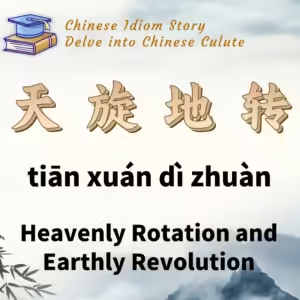
Chinese Idiom: 虚无缥缈 (Xu Wu Piao Miao)
English Translation: Illusory and ethereal
pīn yīn: xū wú piāo miǎo
Idiom Meaning: something that does not exist or cannot be realized.
Historical Source: Bai Juyi’s “Song of Everlasting Regret” (《长恨歌》) from the Tang Dynasty.
Idiom Story:
Bai Juyi, one of the three great poets of the Tang Dynasty, was renowned for his accessible yet artistically profound poetry. In the year 847, when he was seventy-five, Li Chen ascended to the throne as Emperor Xuanzong. The emperor admired Bai’s poetry and intended to appoint him as prime minister. Unfortunately, Bai Juyi passed away later that same year in August. Deeply saddened by the news, Emperor Xuanzong composed a lament in the form of a seven-character regulated verse:
“For sixty years, the pearls of words have been strung together;
Who taught the poet to wander the dark roads?
Floating clouds do not bind the name ‘Juyi,’
Fate is helpless against the ‘Letian’ spirit.
A young boy recites the ‘Song of Everlasting Regret,’
While the Hu children sing the ‘Pipa Xing.’
The literature fills the ears of travelers;
Time and again, nostalgia brings tears.”
Bai Juyi exhibited a talent for poetry from a young age, penning famous lines like “Wildfire cannot consume it all; spring breeze blows again.” Throughout his lifetime, he composed nearly three thousand poems, including celebrated pieces like “Song of Everlasting Regret” and “Pipa Xing.” Emperor Xuanzong’s poem encapsulated Bai’s life and contributions, lamenting his departure and recognizing the vast impact of his work on the people.
“Song of Everlasting Regret” was composed during the winter of 806 while Bai served in Shaanxi Province. During a visit to a local temple with friends, they reminisced about the tragic love story of Emperor Xuanzong and Yang Guifei from fifty years prior. Encouraged by his companions, Bai took on the challenge of crafting a poem to immortalize their story, resulting in the masterpiece “Song of Everlasting Regret.” This long poem was widely beloved for its emotional depth and artistic excellence.
The poem contains one hundred twenty lines, divided into four main sections. The first section describes how Yang Guifei was chosen to enter the palace, followed by the emperor’s extravagant life with her. The second section narrates the rebellion led by An Lushan, Yang Guifei’s demise, and the emperor’s subsequent escape filled with sorrow. The third part expresses the emperor’s profound longing for Yang Guifei, while the fourth presents popular myths surrounding her.
In one poignant segment, the poem reflects the emperor’s yearning as he seeks Yang Guifei’s spirit, leading to the lines:
“Suddenly, I heard of a celestial mountain at sea,
A mountain that lies in the ethereal and elusive.”
From this verse, the idiom “虚无缥缈” emerged, symbolizing things that are illusory or do not exist.






